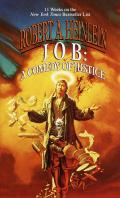Opening Day

Lots going on of late. Most of my free time has been occupied with a project I'll post about later, plus I've been doing the umpire thing, and all kinds of news has been noteworthy, and I've been mildly under the weather since Sunday and binging a rewatch of Enterprise.
But for now, TODAY IS OPENING DAY and I'll be heading down to the ballpark in an hour or so.
In years past I'd have been doing a lot of writing and editing of season preview stuff relating to Your Seattle Mariners, but as we all know, the website that stuff was for and its antecedent publication are both gone the way of the dodo. Thus, I haven't been paying nearly as much attention to the doings of the baseball world in the preseason; I didn't watch a single spring training game or renew my subscription to The Athletic or even pony up to get the everyday newsletters from Joe Pos or Craig Cal. (Craig, I may well take you up on your Opening Day discount offer, but I'm still wavering.)
But the season is here now. Time to buckle down.
The hometown Mariners are not a group that inspires a great deal of confidence, but you know what, they could be really good. They just need to overcome their manager, their lack of depth on the bench, the inconsistency of their ace starting pitcher, the rawness of the rest of the young rotation, a questionable third-base platoon, and an untried relief corps. Otherwise, they look great.
New to the club this year are second baseman Jorge Polanco, who we hope will resemble the Jorge Polanco of 2019 more than the Jorge Polanco of 2020-2023; third baseman Luis Urias, whom I expect nothing from; corner OF/1B Luke Raley, who so far has looked like a Quadruple-A type player, but maybe?; DH Mitch Garver, who actually could be really good; and the welcome return of Mitch Haniger, who we all hope can stay off the injured list.
With that crop of newbies, how can we contain all the excitement?!
Game 1. 7:10pm PDT. I'll be up in section 339 (not my regular seats) keeping score.
No Comments yetWhy do we still do this?!
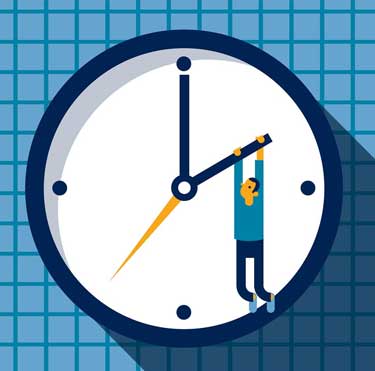
Yep, it's time once again for the nearly-national indulgence in social engineering we call Daylight Saving Time. And once again, I'm posting about how it's something I wish would just go away.
I am, of course, biased by my upbringing in a state that wisely chooses to ignore this tomfoolery. (Seems I'm also in the minority in opposing the practice.) We never changed our clocks in my childhood, though I do recall once when we were visiting my grandparents in California on the weekend the switch occurred and I was excited to be the one to move the hour hands. It was novelty, I guess. But since we never bothered with it, I didn't understand the point of the thing until much later.
Now that I've been living with the practice for a quarter century, and at a latitude where it actually makes a difference...well, I still think it's dumb. (And misnamed—we're not "saving" anything, just moving our schedules.) And a pretty stark commentary on how stubborn and how easily manipulated humans are.
Let's look at why DST exists at all. Because I'm a bit of a history nerd and this is a good way to procrastinate doing my taxes.
First instituted in Europe 1916, followed by Australia and parts of Canada in 1917 and the United States in 1918, the idea was to reduce civilian energy consumption during World War I. (The US law also established consistent time zones in the country for the first time, to aid in the railway and emerging radio broadcast industries.) President Woodrow Wilson liked the concept of Daylight Time—then defined as beginning on the last Sunday in March and ending on the last Sunday in October—and wanted to keep it after the war was over, but Congress said (paraphrasing) f*ck that sh*t, and repealed it in 1920, pointing out that saving fuel for the war effort was no longer a factor. Wilson vetoed the repeal, but Congress overrode. Hooray for separation of powers!
With no Federal law in effect, states and localities either observed DST or not as they chose. For a couple of decades there was temporal chaos! New York City was on Daylight Time, upstate New York was not! Rhode Island followed it, but not Connecticut! Pandemonium! Except not really, because this was the 1920s and ’30s and it wasn't all that important when people didn't travel much or very quickly.
It wasn't until the next big war that DST made a nationwide comeback, with FDR mandating it year-round from February 1942 through September 1945, again to save on fuel consumption. Once the war was over, so was "war time" and localities again prevailed on the subject.
Now we're into the 1950s and ’60s, though—there's more travel, by air as well as rail; there's more broadcasting, TV as well as radio. The hodgepodge is becoming a real issue. (Apparently there was a 35-mile stretch of highway in Ohio and West Virginia wherein the local time changed seven times from one end to the other.) So, we get the 1966 "Uniform Time Act," a title that is simultaneously spot-on descriptive and contradictory of itself. Neat trick. That legislation says states and localities can't go their own way anymore, everyone within a time zone will be consistent with their local time, and that DST will be in effect from the first Sunday in April until the last Sunday in October. States that don't want to participate are exempt only if they pass a state law declaring the entire state (amended in 1972 so the entire area of a state within one time zone could exempt) stays consistently on Standard time year-round. The rationale is once again a theoretical savings in energy consumption during the spring and summer months. (This law interestingly also placed areas of certain states in new time zones, aligning more with longitude than state boundaries in places like Florida and Texas.)
That's where we are today, save for two more legislative tweaks to extend DST's duration—first in 1986 to add three weeks in April, then in 2007 to add three weeks at the front end and one week at the back end. Now we're on DST from the second Sunday in March to the first Sunday in November, nearly two-thirds of the year.
So that's the how and when of it, but the thing that I really find curious is the why.
The rationale for each and every one of the DST laws is to save on energy consumption by shifting activity to earlier in the day so as to take greater advantage of sunlight. But in our human society, asking large numbers of people to move up their daily activity by an hour for part of the year is an impossible request. We're too set in our ways.
We could just say, OK, starting in April schools are in session from 8:00am until 2:00pm instead of 9:00am until 3:00pm. Broadcasters move their scheduling up one hour. Businesses aren't mandated to have any particular hours anyway, but are encouraged to follow suit and open from 8:00-4:00 instead of 9:00-5:00 or whathaveyou. But what kind of compliance would we get?
Some, sure. But a lot of businesses and private schools and such would say, "nah, things are fine the way it is, I don't want to start an hour earlier." Still others would do it, but later in the year or for a different span of months. We're stubborn creatures. We don't like being told when to do things.
But we're also manipulable. We'll go along with it if we're tricked into doing it. Force us to move our clocks and we'll likewise not change our ways—our stubbornness could still come into play by simply acknowledging that the time shift is fake and we'll simply operate our business hours from 10:00 to 6:00 for the duration, maintaining the same schedule as before, but no; we're used to the number on the clock being the proper measure of time, so we just do it because this way we "don't change our habits." Except we totally do.
There's been a lot of noise in recent years about doing away with the change, but mostly on the side of adopting DST year-round (essentially returning to FDR's "war time"). A number of states have passed legislation stating that they'd go on year-round DST if and when Congress amends the Uniform Time Act to allow it. But we've done that before and it didn't go well.
In 1973, in response to the OPEC oil embargo that caused a national gasoline shortage and contributed to economic recession, Congress passed Senate Bill 2702, which President Nixon signed into law in early 1974. SB2702 extended DST year-round for two years during which studies would be done to determine if it should be extended in perpetuity. But within weeks, popularity of the measure went from 79% to 42%, mostly because of early-morning "night" causing more traffic accidents: school children were being killed on their way to school in the darkness, even in southern latitude states like Florida, and some schools did the sensible thing and reverted to astronomical-time scheduling. One study concluded there was a small savings in energy use, not quite 1%; another found gasoline usage actually went up, defeating the primary purpose. But Congress repealed the measure after not even one year, with a House statement noting that any meager energy gains "must be balanced against a majority of the public’s distaste for the observance of Daylight Saving Time."
Of course, things are a lot different now than even in the ’70s. Power usage happens round the clock now. Energy sources are more varied. Does consumption actually change anymore during DST months? Even in decades past studies were inconclusive, with some saying, yes, electric lighting use dropped a small fraction, but energy used for home heating and cooling went up. Others said the overall benefit was about 0.5% difference in overall usage. But nowadays? With computers running 24/7, LED bulbs replacing inefficient incandescents, more renewable sources entering the electric grids, 24-hour societal activity in most cities? I'm quite dubious.
I'm a night owl. I don't care when the sun comes up in the morning, my natural tendencies are to be up late and sleep late. If we went to permanent DST, fine, at least we won't be switching clocks twice a year anymore. But my preference is permanent Standard Time. When high noon actually happens at, you know, noon, not at 1:00pm. Society can change its schedules if it wants to without the trickery of moving the clock hands.
Hell, baseball teams are already starting most of their games at 6:30 instead of 7:00 (and went from 7:30 to 7:00 20 years ago or so), which annoys me no end. For me, later is better! F you, morning people! Creatures of the night rise up!
Anyway, the immediate bottom line is that I have to start my umpire shift tomorrow at noon, which is really 11:00am, and I'll very likely be working five games on only a few hours of sleep. Hopefully I won't blow too many calls.
1 Comment
Thoughts on the State of the Union

I did not watch/listen to President Biden give his State of the Union speech in real time last night. I had an umpiring shift and was otherwise occupied going out to Cal Anderson Park and moving soccer players off of our field (they were, for once, entirely cooperative; thanks, guys) before officiating a few games. I got home around 12:30am, put a pizza in the oven, and settled in to watch the speech in the wee hours.
It did not disappoint. This was a home-run of a SOTU address, not only touting the various accomplishments of the Biden term thus far, not only setting an agenda for future accomplishments in term two, not only calling out the dire threat and horror show returning the previous guy to office would be, but taking the fight right to people in the room with him—Republican Congressmen and SCOTUS Justices—and once again deftly handling the hecklers and outbursts from Congressional nutjobs.
Referencing FDR's "no ordinary time" remark regarding World War II, the president got things rolling with, “My purpose tonight is to wake up the Congress and alert the American people that this is no ordinary moment, either.” We have a new fight against fascism today, and this time it's not just overseas but domestic. In a skillful poke at Republican hypocrisy he invoked Ronald Reagan and the Berlin Wall, comparing Regan's demand that Soviet leader Mikhail Gorbachev "tear down this wall" to Donald Trump encouraging Vladimir Putin to "do whatever the hell you want." Driving it home, Biden said, “A former president actually said that, bowing down to a Russian leader. I think it’s outrageous. It’s dangerous. And it’s unacceptable.”
Biden successfully (I think) reached potential voters with lines like "Does anybody really think the tax code is fair?" and "Clearly those bragging about overturning Roe v. Wade have no clue about the power of women in America." Direct, forceful statements that simultaneously attacked Republicans, offered positive hope for progress, and appealed to not just the Democratic base but ideological moderates and, frankly, a lot of people that wear MAGA hats. (I mean, that latter group is too far gone to hear it, but the appeal was made nonetheless.)
Oh, and he absolutely torpedoed the "dottering senile old man" caricature of him that right-wing media has been constantly perpetuating. In the moment, Republicans were complaining not that "Sleepy Joe" is addlebrained and weak but that Biden was too loud, too fervent, too mean. Make up your minds, asshats.
I read a lot of takes from around the Interwebs today. Most were effusive, none were really negative except Sean Hannity's, and all he could say was that the president "seemed off," like he was grasping at straws to find any way he could spin the event to fit his old-man-Joe narrative. Some, like Pod Save America's Dan Pfeiffer, focused on the nuts and bolts of the speech's content, but most honed in on Biden's energy, Biden's ability to be quick on his feet and ad-lib, and the astonishing behavior of the Republicans.
In the course of his master class, Biden got considerable help from the other side—whose tantrums and outbursts and lies he handled with the deftness of a practiced Kindergarten teacher. They fumed, they pouted, they squirmed, and, like [House Speaker] Mike Johnson, they sat silently even when Biden was talking about removing lead from water in order to protect our children, lowering prescription drug costs, saving democracy from Russian aggression, and the record growth of small businesses—basically anything good about America or the positive progress this country has made since Biden had been in charge.
Biden said, unlike all the people who don’t, that he would always tell the truth about January 6: “You can’t love your country only when you win.” He asked Congress to uphold their oaths and defend the country against all threats, foreign, and, Biden emphasized, “domestic.” Speaker Johnson pressed his lips together and looked mighty uncomfortable. I don’t think he enjoyed himself tonight.
And Steven Beschloss brought it back to the bottom line:
It was a bracing, optimistic, vigorous expression of what the next eight months (and beyond) can look like. Biden made clear last night, as millions of Americans were listening, that now is the time to choose—not just who we want as president, but what country and what future we want. Few times in our history has that choice been more critical.
Well done, Joe. Keep it up.
No Comments yet
Darrin Bell FTW
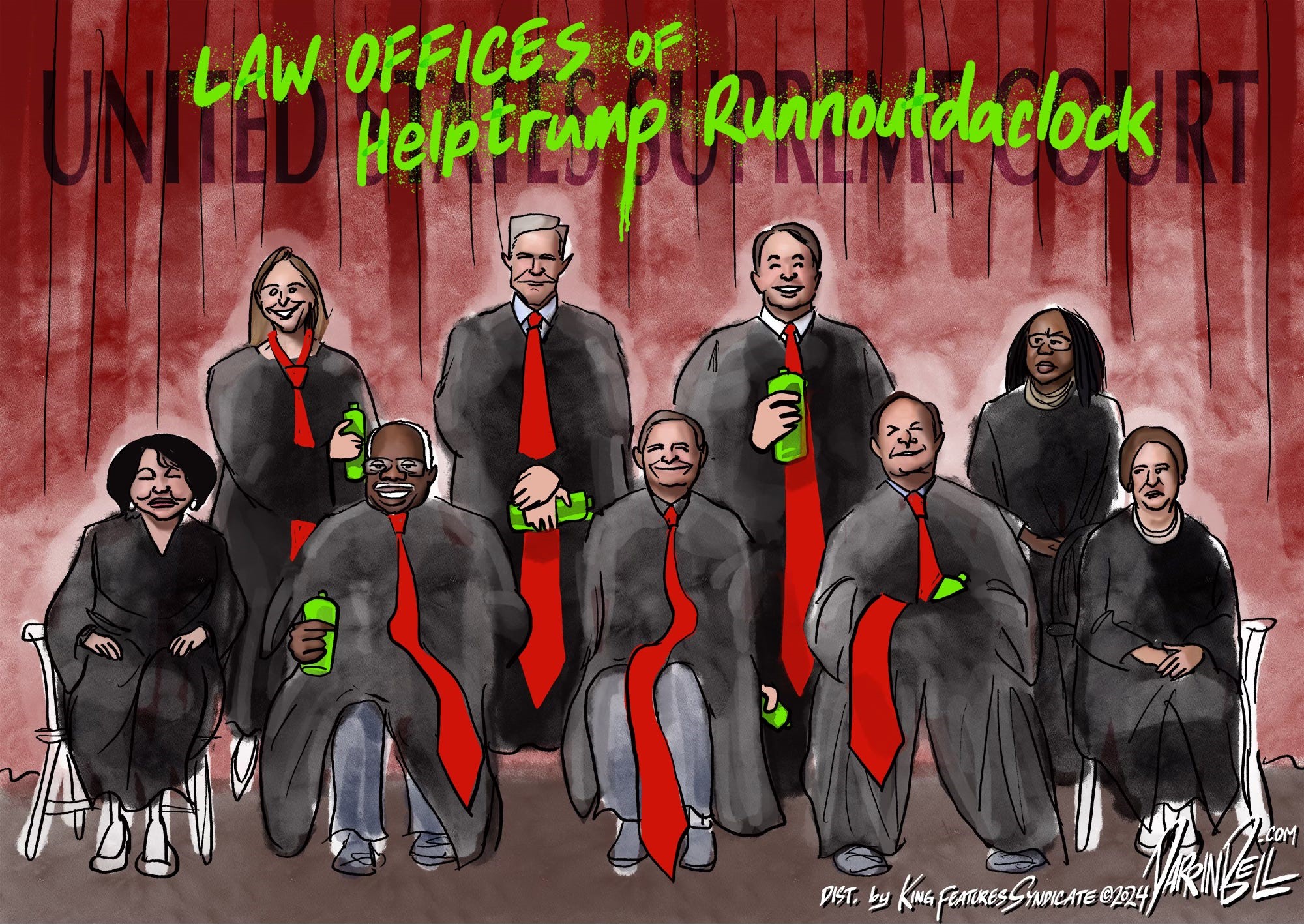
The genius behind Candorville cuts right to the heart of the matter.
I'm not sure what the green bottles signify. Any ideas? (UPDATE: Oh, are they spray paint cans, they've just retitled the banner? OK. Sorry, Darrin, it should have been obvious.)
No Comments yetSupremely problematic
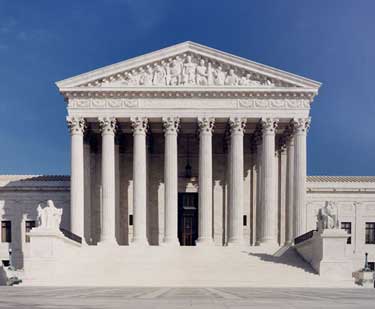
Bribes taken at the back entrance
As if we needed more evidence to support the idea, today's decision by the Supreme Court of the United States granting former president VonClownstick's request to an appeal regarding his claim of "presidential immunity" gives even more reason to believe the Court is corrupt and working in tandem with the Republican party and not in the service of the Constitution or the rule of law.
It's not a "win" for the former president in that all they've decided is to hear his appeal, not to necessarily agree with it, but it is a huge win for him in that it grants him at least two more months of delay in resolving this matter. The likelihood of his standing trial on this case—in case you've lot track, this is the Jack Smith/January 6th insurrection case, not the stolen documents case or the hush money case or the Georgia electioneering case or the civil fraud case or the suits against him from DC police or any of the other myriad court cases the guy's been up to his eyeballs in for his whole life—and a verdict being reached before the November election is now pretty remote.
The trial had been scheduled to begin next week, on March 4th. That won't happen now, as SCOTUS has suspended that until the outcome of its hearing the appeal, which won't happen until April 22nd. When they issue a ruling will come who knows how long after that. Quoting former US District Attorney Joyce Vance:
The case could have been handled much more quickly, especially because the issue before the Court isn’t difficult: either presidents can commit crimes to stay in office or they can’t. The timeline here was a choice, made by the Justices. They chose to give Donald Trump at least two more months of delay. We don’t know how a specific Justice votes on a cert grant. But we do know that at least five Justices voted to hear this case because while it only takes four votes to grant cert, it take five to grant a stay, and the Court’s order, continues the stay in the trial court while the appeal is underway.
It could be June or July before SCOTUS makes a call on this. A trial will take months. Election Day is immovable and doesn't care if a trial is over yet or not.
Clarence Thomas is corrupt. He's taken de facto bribes for decades and refuses to recuse when he's clearly got a conflict of interest in a case. Sam Alito has taken similar de facto bribes from people associated with the right-wing Federalist Society. Neil Gorsuch sold property to a lawyer with 22 subsequent cases before the Court (and no, he didn't recuse himself). Brett Kavanaugh somehow got confirmed by the Senate despite committing perjury in his hearings, having suspicious financial activity and very credible sexual assault allegations against him, and had eighty-three complaints of ethics violations levied against him for conduct in those hearings. Amy Coney Barrett, like Gorsuch, sold property to persons with business before the court and did not recuse; she also refused to recuse in a case involving the David Koch-backed Americans for Prosperity, a conservative advocacy group that spent "seven figures" lobbying for Barrett's confirmation by the Senate (AFP also lobbied for the confirmations of Kavanaugh and Gorsuch, who likewise refused to recuse). John Roberts' wife had a heavy financial interest in a case before the Court and Roberts was fine with presiding over it; he utterly failed to do his job in presiding over the Trump impeachments; and as the Chief Justice he has repeatedly claimed that everyone on his Court has behaved in an exemplary ethical fashion, declining to enforce any sort of ethical guidelines for the Court.
More important than any of that, though—but it is related—is that two-thirds of this Supreme Court has shown itself to be loyal to ideology, not law; Republican policy, not the Constitution.
They support states' rights until it conflicts with their ideology. They support legal precedent until it conflicts with their ideology. They support Constitutional principles—until they conflict with their ideology.
My favorite(?) example of a Justice's hypocrisy and obtuseness came when, in hearing the case regarding Colorado removing Trump from their primary ballot, Alito opined that a single state shouldn't have so much influence on who wins a presidential election. This was from a guy that worked on the Bush v. Gore case in Florida in 2000, a case where the Court completely improperly stepped in to halt a recount and declare that Bush won the presidency because of an incomplete ballot tally in one state.
If not for the presence of too many Republicans in the House of Representatives, Clarence Thomas, at least, would be looking at impeachment. (Personally, I think Thomas, Gorsuch, Kavanaugh, and Barrett should all be impeached, with the latter three being deemed to have been appointed by a treasonous president, but that's a pipe dream.) Gorsuch's seat was blatantly stolen by the Republicans when they refused to confirm anyone appointed by then-President Obama, giving his a uniquely tainted Justiceship.
There is so very much damage to repair from the Trump years, with correcting the Supreme Court near the top of the list. But to do it, we're going to need voters to step up and not only re-elect President Biden, but elect enough Democrats to the Senate and House to neuter the fascist plans of the now-authoritarian Republican Party.
No Comments yetFirst-world problems

My car is in the shop. Nothing horrible, really, at least I don't think so. I'll know more when the mechanic gives me an update tomorrow. Exhaust system issues. It's an old car, things happen.
Being without it for a few days isn't a big deal, but I did have an umpiring shift to cover this evening at Capitol Hill. Fortunately, Cap Hill is the only one of our parks to which I don't have to haul equipment to and from, it all stays on site, which makes getting there without the car less cumbersome. Ye olde metro buses can get me there and back in about an hour's time each way.
Theoretically.
I know from plenty of experience that relying on the bus can be a tenuous thing, so I made sure to leave early enough to accommodate delays. Particularly since no matter what, on a Sunday I have no practical alternative to what we refer to around here as "the crazy bus," i.e. the KC Metro E Line. Up in my neck of the woods it's generally not a big deal, but from the city limits on into downtown the route is often populated by a demographic cohort that is underprivileged and in various manners unhealthy. Thus, riding the E Line is unpredictable.
Still, things went smoothly on the way down and I got to the park with 20 minutes to spare. I used the time to chat up some of my favorite players that were in the game currently being played under the early-game umpire's watch and remark on the start of Major League spring training and generally shoot the breeze while defending my fellow umpire from some criticism. (I mean, yes, he did miss that call at first, but given the bases-loaded situation you got to cut him a little slack; he's only got one pair of eyes and they can't watch all three bases at the same time.) It's playoffs, people get testy.
That game ended and I relieved my fellow ump and took over, grateful that the lights at Cal Anderson park were working again and there were no obnoxious soccer players getting in our way on this cold evening. New teams took the field and I let my ego soak up the comments from both departing and arriving players—"dude, what the hell, why didn't we get you for our game?"; "hey good, Tim's here"; "you're so much better than the other umps"—and I was enjoying things. I made two bad calls, one on a ball/strike decision that was irrelevant as the next pitch was put in play, one more important on a hard grounder over the bag at third base that I called fair and that led to several runs. In the moment I didn't know if it was fair or foul, the angle from home plate on that kind of thing is pretty bad and there was no time to shift position, but it has to be called immediately anyway, so I pointed fair. No complaints, but I still wasn't sure, so after the inning I went to the third baseman, a guy I've seen a lot of doing these games, and asked him. He said it was foul. I believe him, he's not a troublemaker. Oh well. There were a few other bang-bang plays I know I did get right despite some pushback (playoffs, people get testy), so there.
The winner of that game was to play again immediately following in a semifinal match, but as we were nearing the start time for that one I wasn't seeing anyone new show up. Usually by the 5th or 6th inning the teams for the next game are at least partly there, warming up on the sidelines. We were running a bit late, but with no next team waiting I didn't rush things and let the game go the full 7 regulation frames as the Chop Zone Outlaws emerged victorious with a nice double-play turned in the home 7th to secure the win.
Still no opposing team and we were well past the permissible grace period to avoid a forfeit, so I called off the second game and packed up the gear, thinking I'd get home early and get to warm up. The Metro Transit app on my phone told me I could catch a bus in a short few minutes and be home in under an hour. Good, I needed dinner.
But this again involved a transfer to the crazy bus. So it was not to be.
In addition to the typical E Line happenings—a guy sat next to me and started rapping a tune about Jesus; two stops for wheelchair riders that required some delay; the expected onslaught of fragrance from unwashed bodies that gives me empathy for fictional Vulcans on fictional human starships—something happened just as we entered the on-ramp to the portion of Aurora Avenue that becomes limited-access. What happened I still don't know, I haven't been able to suss it out, but we stopped in the middle of the long ramp, stuck behind a disabled bus immediately ahead. Why we couldn't go around I'm not sure, but we were stuck and given where the bus was, the driver didn't want to just let us all out; there was a small shoulder, but next to that a big concrete divider with another lane of traffic and an elevation drop on the other side and opposite another divider beyond which was traffic going the other way. Pedestrians were not accommodated there.
So we waited for help. Some Metro mechanic or tow vehicle or something to clear the way.
But nothing happened. I got through the latest episode of the Fast Politics podcast in its entirety before the first passenger rebelled and broke the cover over the emergency release on the back door and let himself out. The driver resealed the door best he could, then went to talk to the driver of a third bus which was now stuck behind us. Before long other passengers pulled the same maneuver and reopened the door and just walked out into the street. Fortunately, this is on a Sunday night when traffic was relatively light.
Eventually Metro officials had blocked off a makeshift pedestrian route for us to exit the bus and walk back along the on ramp to what my California relatives would call the surface street, and we got to wait for the next E bus to arrive with two other complements of passengers. That took a while (during which time it started to snow), then we all crowded into the next bus, which made a bit of a detour to rejoin the highway later on, and I managed to get to my stop and exit the bus before the headache that had started building as soon as I got on the overcrowded coach had gotten truly unbearable. The few-blocks walk back to my place in the snowy sleet wasn't quite enough to clear my head but it helped.
The thing is, had I stayed to work that second game, because of Sunday schedules and such, I would have had an alternative to the crazy bus. There is a night-owl route out of Northgate that gets relatively close to my place, I could have taken the train to Northgate and caught that instead; barring other complications, I actually would have been home well before I actually made it here.
Alas.
I've got another game to ump tomorrow night. This one I have to haul gear to, so my car better be ready by then. Otherwise I have to brave the crazy bus again, but with a 10-pound bag of softball gear. [Cue sad trombone noise.]
1 CommentJournalistic malpractice

There has been a disturbing trend in the world of American political punditry of late. Journalists and commentators and substackers and the like, including people I generally respect, have been jumping on the "President Biden is too old and shouldn't run again" bandwagon. This bugs me on a number of levels, most of which redound to (a) Joe Biden has a remarkable string of positive accomplishments in just three-plus years in office and has shown zero evidence of losing his capability to keep doing so; and (b) it's another success story for Republican propaganda movers who spout bullshit on Fox "News" and the like and see it travel all the way into the words of people like Robert Reich and Ezra Klein and Jon Stewart.
Klein's piece in the New York Times is particularly galling because he all but admits he's furthering an argument based on propaganda.
Titled "Democrats Have a Better Option Than Biden," Klein's essay spends a great many words on explaining just how awesome a job Joe Biden has done as President before concluding he has to go. It's insane. After trumpeting many of Biden's accomplishments—uniting the party leadership, wrangling a contentious Democratic caucus in the Senate to pass several pieces of landmark legislation, shepherding a post-peak-COVID economic recovery that is the envy of the world—he looks at the polling (which isn't currently great), mentions that Trump-appointed special counsel Robert Hur peppered a report utterly clearing Biden of any wrongdoing in a classified-documents matter following his vice-presidency with insults and innuendo deliberately fabricated to further this very bit of propaganda, and then basically throws up his hands like Bud Selig at a tied All-Star Game.
Acknowledging that there is no indication, zero, from anyone who works with the president, from White House staff to former House Speaker Kevin McCarthy, that Biden is in any way incapable or inattentive, Klein says that doesn't matter because campaigning for re-election is hard and tiring.
He cites as evidence that Biden isn't up for a campaign that the President didn't do a TV interview for the Super Bowl pregame show, as has become customary over the past several years. "The Super Bowl," Klein writes, "is one of the biggest audiences you will ever have. And you just skip it? You just say no?" Well, let's think about this for more than two and a half seconds, Ezra. Who would have conducted that interview? CBS claimed not to have a correspondent in mind for the job, but Margaret Brennan of "Face the Nation" was surely in the mix and she's...well, to be fair, she's not Chuck Todd or Sean Hannity, but nor is she Cronkite or Koppel. Whether Brennan or someone else, the hot topic of the day in newsrooms was that stupid Robert Hur report, which was basically being regurgitated without pushback in mainstream news media. I don't blame the President for not wanting to provide another opportunity for a reporter to give more oxygen to GOP smears. Was it risky? Sure. It's a pass at a big audience, but not the audience Klein was making it out to be. The Super Bowl itself is a ratings bonanza. The pregame interview with the president is a few minutes when a large chunk of that audience goes out for a snack run or yaks with their guests at the Super Bowl party, they're not really watching.
Also, the media landscape isn't what it was even a few years ago. TV interviews have their place, to be sure, but in terms of campaigning, which is what Klein is talking about here, a sit-down on CBS with a correspondent more interested in drama than journalism probably doesn't serve much purpose. TV news is a different beast today than in decades past. Digital media is far more important for the under-50 demographic. Navigating that has its own set of challenges, but skipping the Super Bowl just isn't the big deal Klein and others make it out to be.
Yes, to campaign successfully, Biden needs to be in view doing his job and showing the world he's sharp. And yes, slipping up and saying the name of the former Chancellor of Germany instead of the current one isn't helpful, but it's the sort of thing Joe Biden has done for decades and isn't necessarily a sign of age-related decline. Journalists have to stop feeding the GOP meme that "Grandpa Joe is feeble and senile" and instead remind the public that age is but one factor when assessing one's overall health and in and of itself the number isn't indicative of anything. As stated by a professor at Australia's University of Sydney, "It’s important to realize that as people age they become more diverse in their abilities and characteristics, probably more so than at younger ages."
Joe Biden is 81. He bicycles (both on a traditional bike and a Peloton), lifts weights, and has a personal trainer. He doesn't have a special diet, but never overeats, according to his medical-doctor wife. He has a few ailments—acid reflux, arthritis, persistent sinus irritations, things most of us can relate to to one degree or another—and plays through the pain, as it were, of his osteoarthritic spine. He had COVID, but thanks to vaccinations and boosters did not have a serious case. He is, in short, a healthy dude.
Franklin Roosevelt died at just 63, he was literally dying during his last run for reelection. He actually did fall asleep during meetings and need a great deal of assistance due to frailty, but no one believes FDR wasn't up to the job. Ronald Reagan had Alzheimer's, by some accounts as early as 1984 when he was 73, certainly by the time he was into his second term at 75, yet people still lionize the guy (which is crazy, but not because of his dementia). JFK's physical health was terrible, he had Addison's disease and treated back pain with heavy use of amphetamines. (Kennedy's health was so consistently troubled that within the Kennedy clan, there was apparently a running joke that if Jack Kennedy were to be bitten by a mosquito the mosquito would die from food poisoning.) Woodrow Wilson was incapacitated in his early 60s by a stroke in mid-term and continued on with others largely running the show for him. Chester Arthur had a fatal kidney infection, a symptom of which was extreme fatigue, but ran for reelection anyway (he lost) before dying at age 57. Then there's now-77-year-old Trump, who has lied continuously about his own health and made sure that official reports were edited to show he had no ailments, suggesting he has many (plus he's, you know, sociopathic and staggeringly stupid). Every one of those guys was/is younger than Joe Biden and in far, far worse health.
Klein also disputes that the Joe-is-too-old issue is propagated by news media. He writes, "In poll after poll, 70 percent to 80 percent of voters are worried about his age. This is not a thing people need the media to see." Really? Why do you think those people were "worried about his age" if not because of what they saw on/read in the news? Because he said Mitterand when he meant Macron one time? Because he talks a bit more quietly than others? OK, then what are reporters like Klein doing about that? He almost does something about it with this piece, making many good points about how successful and capable Joe Biden has been and continues to be, but instead he chose to perpetuate the meme. Even if I were to accept the statement that "this is not a thing people need the media to see," here you are, Ezra, in the media, reinforcing the idea and making it worse!
"The presidency is a performance," Klein writes, using the word not in the sense of your annual performance review at work, but in the sense of an actor performing a role on stage. And people answering pollsters don't like what they see on the stage. So get someone else, practical concerns be damned, choosing the right person to do the job after the campaign be damned, the only priorities should be charisma and poll numbers.
Klein's conclusion seems to be, "Americans are stupid. Thus, if we want the Democrats to win, we must replace the man who has had arguably the most effective and successful first term as President since LBJ with a hypothetical younger person who may or may not be an empty suit."
My conclusion is, "American journalists are failing. They are allowing disinformation and propaganda to fuel their reportage without adequate analysis. They are prioritizing drama and conflict over truth and facts. And they convey that running for president is what's important, not the actual job of being president."
Look, Klein is scared. I get it, I'm scared too. This is a literal must-win election. Biden cannot lose or else Trump regains power and destroys this country as we know it, contrary to what Jon Stewart said the other night (he said, addressing supporters of both candidates: "If your guy loses bad stuff might happen, but the country is not over. And if your guy wins, the country is in no way saved." I never thought Jon Stewart would be one of the guys not paying attention). The fact that Biden is behind in the polls is unfathomable to anyone paying attention, and the fact of the matter is that a not inconsequential fraction of Americans are stupid. Rubes, conned into following a cultist who thinks they're disgusting and exist solely for him to exploit. Another percentage is not in the cult, but is ignorant enough to support candidates that hurt them, what I think of as the "battered spouse contingent" of the Republican party that has existed for decades. Between the two groups, there might well be enough of them to plunge us into a new dark age. It's fucking terrifying.
But: (a) Biden is who we've got, there is no practical way of replacing him on the ticket unless he voluntarily cedes the top spot to Kamala Harris, and then Klein and company will freak out because Americans are racist and sexist as well as ageist; (b) Biden is actually a damn good president; (c) Republicans and Russians (is there a difference any more?) will tar and feather whomever the Democrats nominate with fabricated propaganda and the sheep currently comprising the bulk of the American news media will regurgitate it all anyway. "But her e-mails." "Swift Boat Veterans for 'Truth'." Birtherism. The Willie Horton ads. Who the candidate is is merely a detail, the smear campaign will just be retailored.
We've got some time before November. Let's do better than the "journalists" in informing the public and getting out the vote.
UPDATE: One newscaster/pundit that is trying to educate the public about true things is Lawrence O'Donnell, who took this on in his show a few nights ago. He covered some of the same ground I did above (written before I saw the clip), and I recommend this video, share it around. It's longish, but clarifying.
1 Comment
Dazed and relatively alert

There's a scene in the TV show Ted Lasso (season 2, episode 1) in which star footballer Dani Rojas accidentally kills Earl, the team's greyhound mascot, when Earl is struck by Rojas' kicked soccer ball. It's a little bit counter-intuitive, as a soccer ball is relatively soft and full of air, but physics. You know, potential energy, velocity, mass × acceleration, that sort of thing.
Last night as I was preparing for an umpiring shift, I found myself empathizing a lot more fully with Earl. Some guys playing soccer on our field, dilly-dallying about getting out of our way so we could start our softball game, kicked a soccer ball—hard—and clocked me right in the temple. I went down, sort of blacked out (in the sense that my vision went dark but I was still conscious) for about, I don't know, 15 seconds, maybe, and then got up and made my displeasure known to the soccer jerks. One of my softball players was out to assist me straight away and he moved to go after the soccer guys, but I just shouted at them and they left without further incident.
I didn't see it coming, of course, so I can't say if it was an accident or a deliberate attempt to hit me without understanding how hard the impact would be, but I am fairly sure there wasn't an intention to injure me. I've had enough conflict with soccer players who won't leave our fields that it makes things murky and I can't be sure of their hostility or lack thereof; could go either way.
Either way, it rattled my cage pretty good and it took a while for things to normalize. Don't ask me what happened in the first couple innings of our game, I couldn't tell you. I do know I didn't think to do some of the normal pregame stuff like clearing foul ground of obstructions (soccer goal) and checking the bases (one had a broken post the other day) until midway though our game. Things seemed fine by mid-game, but I woke up today with a splitting headache and basically lost my whole Wednesday to trying to sleep off the pain.
It's OK now. I still feel the sting of the impact on the side of my face, but the headache is gone and I don't feel at all dazed or impaired. But I'm glad I don't have another game to ump until next Tuesday.
Fucking soccer.
2 CommentsKeeping busy
I've not posted anything here since the holidays, and, well, that's partly because the holidays suck and I didn't want to belabor that. And partly because, since they do suck, and since I'm also saddled with my ever-present Black Hole of clinical depression, there's been a bit of a lag time in surfacing from the latest dip into the Black Hole's gravity well. It's almost a given that said gravity will take hold around the end of the year, and the trick is how long will it take to climb back to a stable orbit.
It's been slow going. Fits and starts. Altitude gain followed by backslides. But two weeks into the year I can sense a sort of normalcy returning.
One way to fight the pull and get closer to apogee is a project. Focus on building something. So, in addition to a client gig that I just finished today, I've had a few things in progress: More eBay stuff, improving the lighting in my living room, and solving the problem of Preventing Damage From Cat on Printer/Scanner.
Zephyr is now a grownup kitty. Took him a couple of years to fill out to his adult weight, but he's there now. Even though he's still a runt, he behaves like a more massive feline since he has all the grace and agility of Chevy Chase as Gerald Ford. And whenever I'm at my desk he likes to climb up on my scanner, which is part of the reason I had to replace said scanner after the sheet feed apparatus broke and the internal mechanism relying on a belt that moves the imager back and forth became became, well, wonky and inconsistent. I'd rather not replace the new one because of more cat damage, but convincing him to stay off of it is a losing battle.
Hence, my solution. Some wood scraps screwed together into brackets, a cheap piece of OSB plywood, a hinge, a piece of leftover carpet, and some paint. This evening I have the finished product doing it's thing.


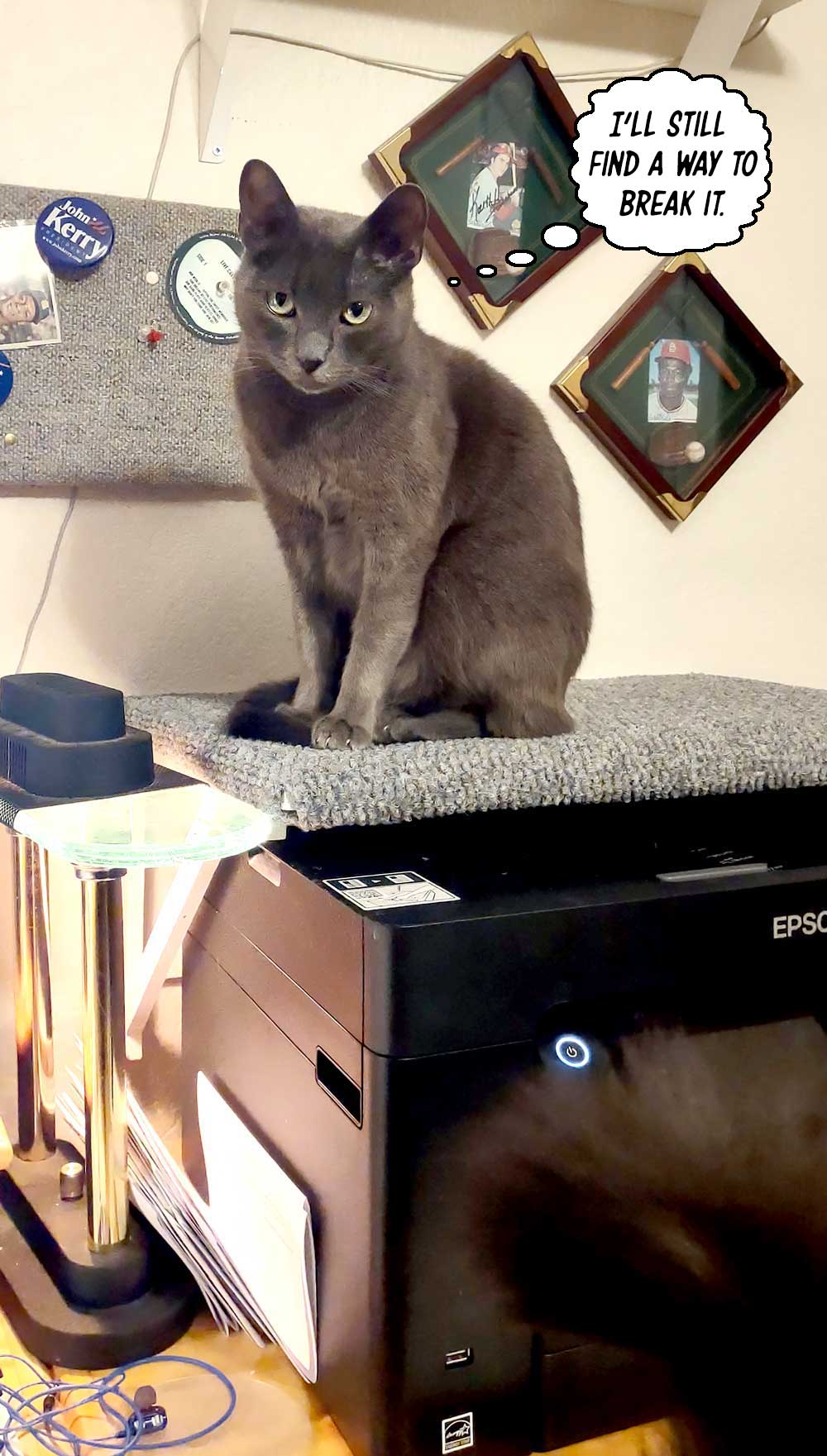
Next up will be extending the overhead track lights, for which I am awaiting parts.
And one of these days I need to fix the Cloud Five site, which has been broken for a while. In case I ever want to revive that.
3 CommentsHumbug!

Happy Xmas, denizens of the Internet. Or, you know, a tolerable one, anyway.
I had started to write a post about how Christmas is a drag for a lot of us fifth-wheel types in this society, and it's true that for me and plenty of others Christmas is less a time to anticipate and celebrate than a time to endure and get through. It's the loneliest time of year, sometimes especially when surrounded by other people unwittingly flaunting their relative happiness.
But that post was starting to get not just dour and depressing but hostile and resentful, and that's not where I want to be. So I'll just say to everyone out there, enjoy whatever you're doing tomorrow and whomever you spend it with. Myself, I will spend tomorrow cooking Mexican food and watching movies and punting my real holiday to Wednesday, when the people I want to be with are free of their relatives. That's just how it is, and I'm good with that as the alternatives are worse or to ignore the holiday altogether.
Meanwhile, some notes of positivity to lighten things up some...
- The new Captain America comics are outstanding. By J. Michael Straczynski and Jesús Saiz, the new series follows Cap mostly in his plain-clothes Steve Rogers state as he opts to buy his former apartment building from the slumlord that was going to demolish it and instead renovate it and keep its residents from being tossed out. A very Steve Rogers thing to do. While doing this we see Steve flash back to his childhood memories related to the building, which of course were in the 1930s as World War II was ramping up. Those events will tie into a current threat, of course, but it's a nice little parallel to see presentations of scrawny pre-super-soldier-serum Steve and his neighbors clash with the very real American Nazis of the 1930s and witness them describe their nefarious plans for Germany and the US in language that is reflected menacingly by modern-day Republicans in the real non-comic-book world. Straczynski's idea was to explore a Captain America backstory that hasn't been tapped yet:
The years young Steve was on his own were the same years during which the American Bund – for all intents and purposes the Nazi Party in America – was growing very powerful in real world New York, blocks from where he lived. They held public marches and rallies, harassed people, and spread hate, all part of an effort to get America on the side of the Nazis, a campaign that came to a head with the biggest Nazi rally on American soil in history, as tens of thousands of people, Nazis and Nazi sympathizers, crammed into Madison Square Garden to celebrate their dream of a thousand-year Reich. We are going to put young Steve right into the middle of that real-life vortex, where despite terrible odds he will make a crucial difference at an even more crucial moment. For a young Peter Parker, the murder of his uncle Ben was a transformational event putting him on the path to becoming Spider-Man. This story will be equally transformational, putting a young Steve Rogers on the path to being the hero he eventually becomes.
Anyway, it's great, I recommend it. - Speaking of fascist movements in America, Miles Taylor's new book Blowback is essential reading for anyone who hasn't been paying attention to American politics for the last, oh, ten years or so. Taylor was "Anonymous," the author of the unsigned New York Times Op-Ed that explained that he was among the grown-ups reining in the worst abuses of the Trump Administration; this book not only delves into what that meant, but how as Trump learned how the government worked—which is to say, as he figured out where the laws and officials that prevented him from doing the various un-American and illegal things he wanted to do were situated—he began to worm his way around obstacles via legal loopholes and things like "acting" appointments of toadies that needn't be approved by anyone. Which meant that the adults in the room were no longer effective at reining him in and were largely forced to depart. Each chapter starts with details on Taylor's experiences and ends with the logical extension of how the next authoritarian to reach office will behave. It's an excellent book and a chilling read, so not exactly uplifting and fun, but tremendously worthwhile nonetheless.
- For all Mankind is back with its fourth season on AppleTV+, and it's great as always. The only characters still around from the beginning are Ed Baldwin, Dani Poole, and Margo Madison, but the whole group is terrific. The show starts off in July of 1969, whereupon history diverges from what we know when the Soviets land on the moon first. Over the course of the series, the divergent history gets farther and farther away from what we know from the "real world," and in the current season we're in the early 2000s establishing a more permanent presence on Mars, or at least trying to. I miss executive producer Ronald D. Moore's more hands-on influence and past characters, especially Jodi Balfour's Ellen Waverly/Wilson, but I still eagerly await each new episode.
2024 is just around the corner. Buckle up, folks, it's going to be a wild one.
No Comments yetSo long to a Mariner who deserved better

The Rodney Dangerfield of pitchers
The baseball winter meetings are in full swing, and Your Seattle Mariners were among the teams to make some news with a big trade.
The other day, the Mariners dealt outfielder Jarred Kelenic, first baseman Evan White, and pitcher Marco Gonzales to Atlanta for two formerly highly-touted pitching prospects that now have questionable abilities. On its face, it makes no sense and I can't yet figure what part this plays in the alleged master plan for the 2024 season.
I'm unhappy with this trade mostly because I am a huge Marco Gonzales fan. I might be Marco's biggest fan that isn't related to him. I say that because Marco has been, as I've long described him, the Rodney Dangerfield of Major League pitchers—he gets no respect.
Local fans soured on him over the last couple of years, and frankly they weren't that high on him to begin with, which doesn't really speak well of local fandom. The team itself seemed to think poorly of him—the club's former CEO referred to him as a "boring" pitcher; his manager seemed not to trust his ability to navigate baserunners; he was even left off the postseason roster in 2022, which was a huge metaphorical slap in the face.
That all annoyed me, to put it mildly. Marco is the sort of pitcher I love to watch; rather than rely on sheer muscle or wacky breaking stuff, he succeeds by spotting the ball and mixing pitches and being smart. When healthy—and he hasn't been for much of the last two seasons—he's just sneaky good, good enough to be a 20-game winner if only he had an offense behind him that could score more than a couple of runs for him and/or a manager that didn't panic when two runners get on with two out in the middle innings. He should have won 20 in 2019 but had to settle for a 16-13 campaign that included six losses in which he posted a quality start (6+ innings and no more than 3 earned runs allowed), including a 1-0 game and two 2-1 contests.
After dominating in the 2020 mini-season (3rd in the league in WHIP, 8th in ERA, 1st in K:BB ratio), he had to deal with forearm problems in ’22 and ’23, plus personal traumas that by his own admission took his focus off the game. Still put up decent numbers, though. And, through it all, Marco Gonzales remains a top-notch human, dedicated family man and proud local resident and generally good-natured guy.
But he's not flashy and his recent injury troubles contributed to a lot of negativity from the aforementioned local fandom. The guy deserves better.
Hopefully he'll get better respect with his new team, whomever that turns out to be.
For now, that's the Atlanta Braves, but the rumor is that the Braves intend to flip him elsewhere. Seeing that caused me to revise my initial impression of the trade—at first it appeared that the M's representative, be it operations chief Jerry Dipoto or new "general manager" Justin Hollander, started things off by shopping Kelenic and his massive whiff rate and after back-and-forth got snookered into a bad deal.
Now it appears that getting rid of Marco was the real goal in order to dump some salary. He's on the last year of his contract and is owed a sizeable-but-not-upper-echelon chunk of change in ’24. Atlanta wanted Kelenic, Seattle said, "OK, but you also have to take Gonzales," and Atlanta countered with, "well, that doesn't help us, throw in something else maybe," and Seattle said, "well, we have this first baseman we thought was going to be a star before we rushed him to the bigs too fast and then had to have a bunch of surgeries." Which Atlanta replied with, "OK, but you already gave him a big contract, so you'll have to cover most of that," and Seattle said, "fine, what do we get in return," and Atlanta said, "you can have this former 2nd-round draft pick that just had Tommy John surgery and hasn't thrown a professional pitch yet and another former top draftee reliever that's stunk it up since turning pro and that we just took a flyer on." Seattle replied, "So, two big unknowns that won't likely do anything for us right away if ever? Sounds good! Let's sign it."
At least, that's how I picture it.
Fitting, really. Even after being traded Marco is dissed by his new team, they don't even want him. The injustice of it all.
Meanwhile, I'm fine giving away Kelenic. He was a bust, and though he could turn it around and live up to his top prospect status at some point, he probably wasn't going to do that here. White I'm sorry to see go, but he's kind of like the pitcher the M's got in return, a former top prospect coming off of surgery and a big question mark for the future. He's an elite defensive player, but given how the M's botched his development years who knows if he'll ever hit.
With the Mariners having previously traded third baseman Eugenio Suárez to the Diamondbacks (also for not much return in a salary dump) and letting right fielder Teoscar Hernández go via free agency, they've rid themselves of three of the worst strikeout offenders in the Majors as well as about $50M in payroll obligations. It remains to be seen what they spend that savings on or who will fill the resulting holes.
Good luck, Marco. I hope wherever you end up you have a decent manager and get your 20-win season.
UPDATE
As I was writing this, Atlanta flipped Marco to the Pittsburgh Pirates. For basically nothing. More disrespect. Atlanta offloaded him in exchange for merely the ever-popular Player to be Named Later or Cash Considerations from the Pirates, and Atlanta will end up paying most of his salary.
No Comments yetMass insanity

I am one of those people that follows politics and the national news fairly closely and that's not been terribly good for my mental health the last several years. The American Nervous Breakdown, as Bob Cesca calls the phenomenon that has led to our current social reality, has many facets. It's not just the propaganda that feeds the bonkers cultists who go to Trump rallies and buy AR-15s, the bonkers voters who elect the worst people Congress has ever seen, the bonkers corruption happening out in the open on the Supreme Court, and the bonkers racists that feel like they now have permission to be openly hateful in all their daily interactions. It's also those of us seeing all this going on and justifiably freaking the fuck out about it.
We have to keep tabs on it, too. It does no one any good, not even ourselves, to ignore it and act like that dog in the fire meme saying "this is fine." Yet, a huge percentage of us here in ’Murca are doing just that, either not paying attention at all or somehow are of the mind that the literal fascist uprising that is the modern Republican party is hunky-dory with them, and the consequences for this ignorance could be catastrophic. Thus, the anxiety meter goes to 11.
Joe Biden has an approval rating of just 41%. That's crazy. When you consider the obstructionist Congress and the sheer scale of damage to governmental function he inherited, his accomplishments are amazing.
The recent polling—yeah, I know, polls; not exactly the most reliable information of late, the methodology is still in need of some tweaking—is astonishing. A huge majority of Americans think the economy is merely "fair" or "poor"?! Inflation is way down. Unemployment is remarkably low. People are spending. Yes, some things are more expensive than they were a couple years ago, but some of that is normal and the things that are a real concern for folks—housing costs, insurance, medical care—have to be looked at in context.
There is a lag time to policy change. Much as we might like the effects of legislation or judicial appointments to be immediate, they're not. Just as the inflation we've been dealing with of late can be traced to consequences of the COVID pandemic and its horrendous mishandling by the previous administration (as well as the consequences of some positive things, like rising wages), the stabilizing effects of the Inflation Reduction Act and tax reforms take time to spread through society. Just as the horrors being visited on us by the Supreme Court and other jurisdictions since Joe Biden took office are the result of the previous guy's appointments and the Republican Senate's leader preventing President Obama from filling a staggering number of judgeships—a years-long buildup—reclaiming the judiciary for the rule of law and the Constitution is not a short-term project.
We've got a critical vote coming up in 11 months. People better start paying attention.
Upset that your health insurance costs more? I am. I had to change to a worse policy for next year and I'll still be paying about 25% more in premiums. Is that Joe Biden's fault? Hell no! In fact, he's managing to keep it from being worse! The alternative—those fascist Republicans—want to kick people off of health coverage altogether. They want insurance companies to rob the rest of us blind. Give Joe Biden a Democratic supermajority in Congress and we'll get an expanded Affordable Care Act and better coverage for less.
Pissed that your groceries cost more? Well, in point of fact, not all of them do, some things are less expensive now, but the alternative to President Biden and Democratic attention paid to the affordability and quality of those groceries is those fascist Republicans, who want to abolish regulations that seek to ensure the meat and produce you buy won't put you in the hospital, a hospital that you won't be able to afford because they will have also taken away your health insurance.
Squeezed by your rent every month? Well, that's really a function of locality and a lot of interrelated factors, so I'm not sure what will help there. But I can tell you that the Republican policy that favors corporations over human beings will allow more and more disparity and exacerbate the wealth disparities that make cities like mine so damned expensive to live in.
And then there's the "Biden's too old" thing. When people say they're concerned about Joe Biden's age, there needs to be a follow-up question: What factors related to his age worry you and have you seen any evidence that he's at all incapable? Do people think he's forgetful or can't stay focused? All evidence says he's not and he can. Do people think if he does become incapable that he'll deny that reality and his staff and cabinet will allow it? Do they even know who's in the cabinet? Do people think if he dies in office or had to resign for his health there'd be no capable and effective replacement—i.e., do they fear Kamala Harris? Why? How much of the "he's too old" thing is camouflaged racism/misogyny regarding the VP? And, once again, even if people insist their age-related concerns are legitimate, consider the alternative: a doddering, fascistic criminal in far worse health and cognitively challenged even at his peak, who is bent on petty revenge and completely lawless, greedy, and sociopathic.
I swear, every election cycle it appears that more Americans get dumber. Here's a poll I'd like to see conducted: Let's survey Americans about their knowledge of how their government works. Show them some "Schoolhouse Rock" and ask if they knew about the details presented therein before.
1 Comment

